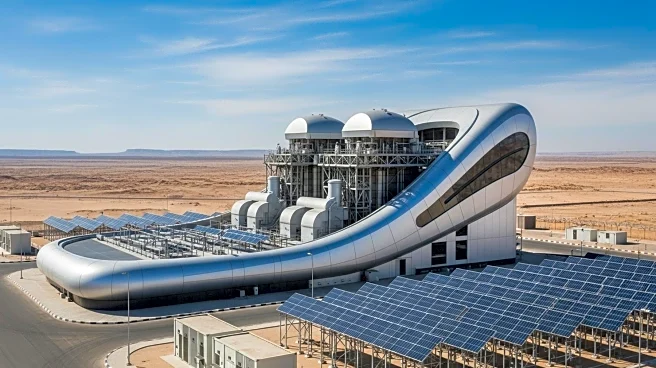What is the story about?
What's Happening?
Kuwait is set to expand its power generation capacity by 14.05 gigawatts by 2031, as announced by Subaih Al-Mukhaizim, the minister of electricity, water, and renewable energy. This initiative aims to address the country's increasing energy demands due to rapid population growth, urban expansion, and extreme temperatures. The expansion includes several key projects such as the Al-Zour North power plant's second and third phases, the Shagaya renewable energy project, and the Khairan power and water desalination plant. These projects are being developed through public-private partnerships and international collaborations, including cooperation with Saudi Arabia's ACWA Power and China.
Why It's Important?
The expansion of Kuwait's power generation capacity is crucial for meeting the country's growing energy needs and preventing power shortages. As a major oil producer, Kuwait's ability to manage its energy resources effectively is vital for its economic stability and development. The planned projects will not only enhance energy security but also promote sustainable energy practices through renewable energy initiatives. This move is expected to benefit local and international stakeholders involved in the energy sector, potentially leading to increased investment and technological advancements in the region.
What's Next?
The next steps involve the continued development and implementation of the planned power projects, with bidding processes already underway for some phases. The successful completion of these projects will require ongoing collaboration between local and international partners, as well as effective management to ensure timely delivery. Stakeholders will be closely monitoring the progress to assess the impact on Kuwait's energy infrastructure and its ability to meet future demands.
Beyond the Headlines
The expansion of Kuwait's power projects highlights the broader trend of Middle Eastern countries investing in energy infrastructure to support economic growth and sustainability. This development may influence regional energy policies and encourage further collaboration between countries in the area. Additionally, the focus on renewable energy projects reflects a shift towards more sustainable practices, which could have long-term environmental benefits.

















